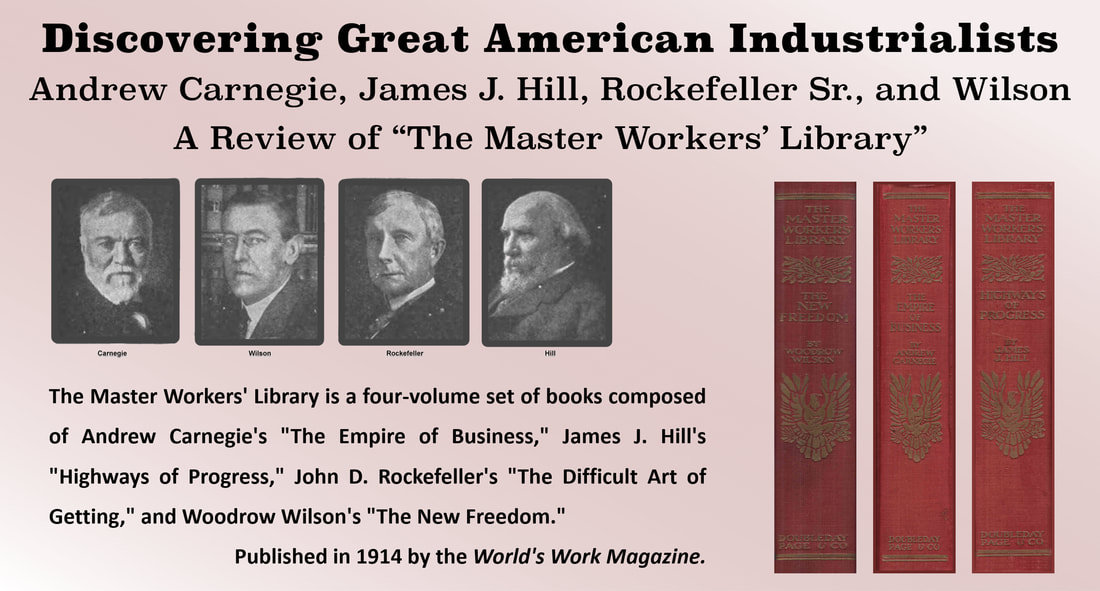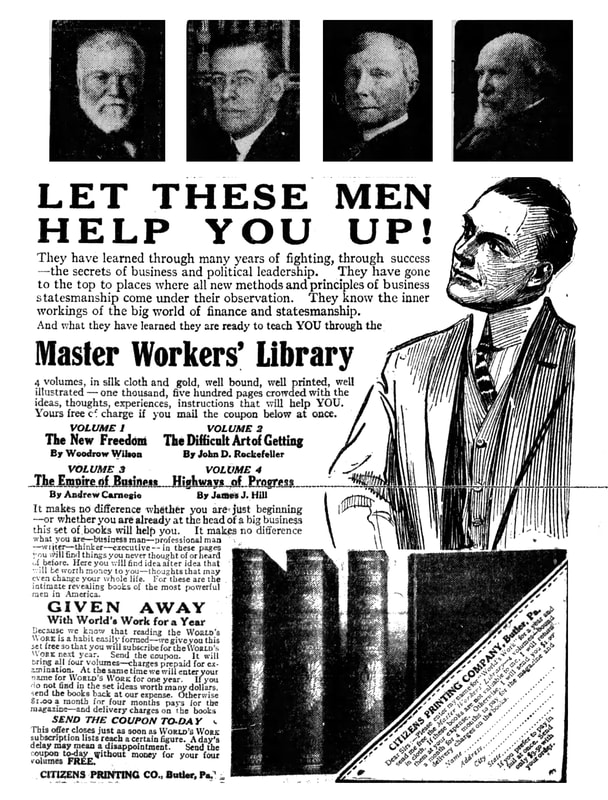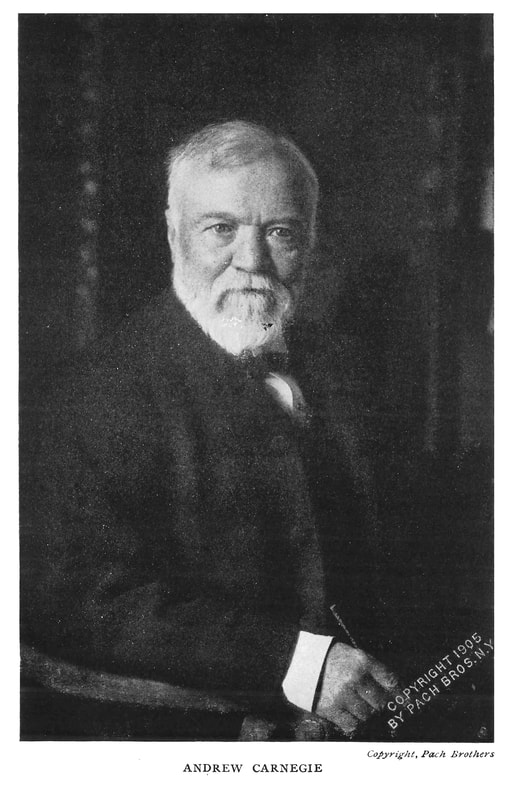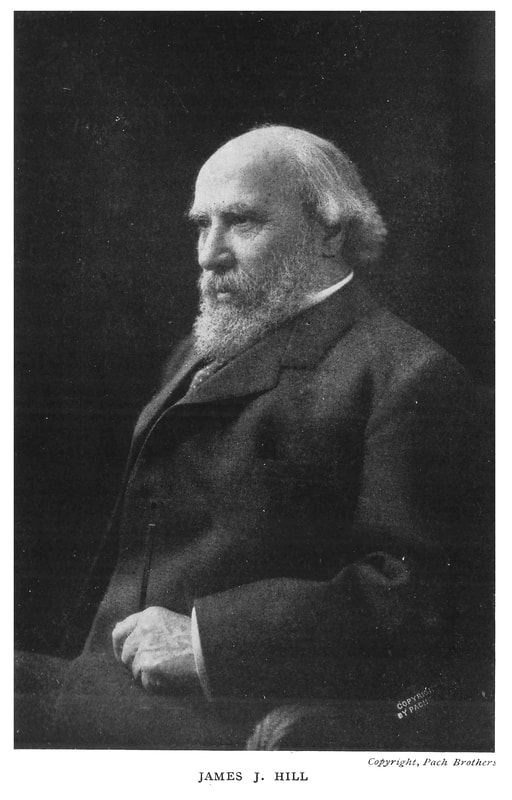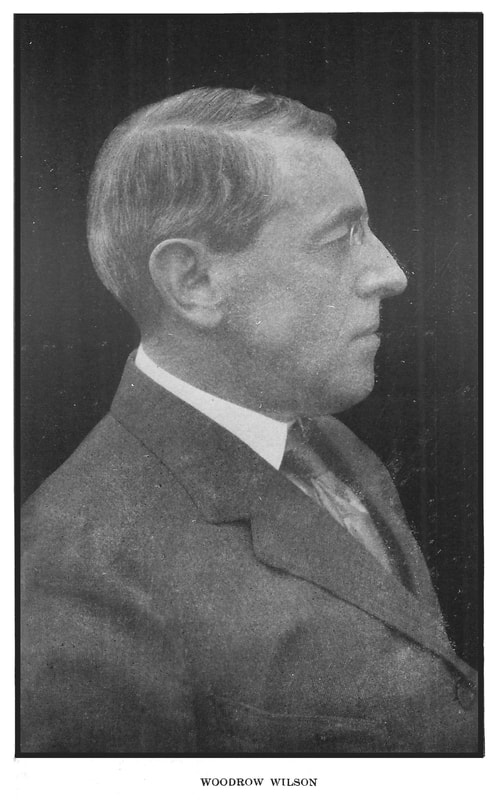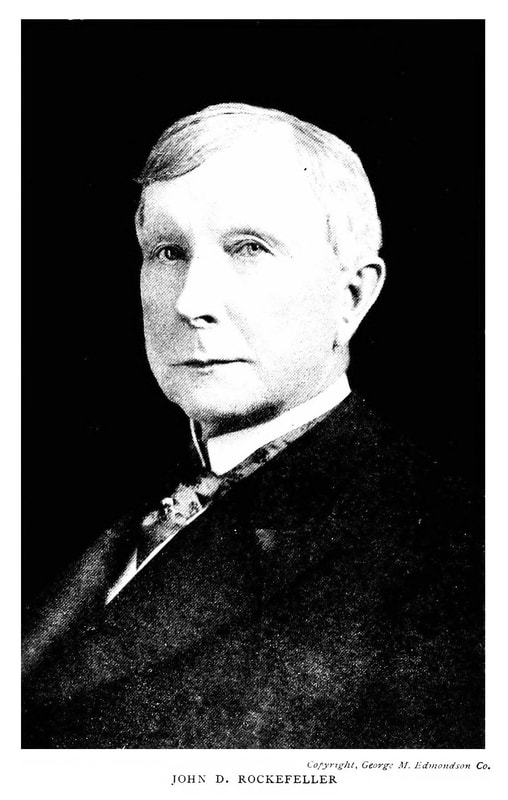A Review of "The Master Workers' Library"
|
|
Date Published: June 28, 2021
Date Modified: January 10, 2024 |
The Master Workers' Library is a four-volume set of books composed of Andrew Carnegie's "The Empire of Business," James J. Hill's "Highways of Progress," John D. Rockefeller's "The Difficult Art of Getting," and Woodrow Wilson's "The New Freedom."
It was published by the World's Work Magazine in 1914.
It was published by the World's Work Magazine in 1914.
A Review of "Master Workers' Library" by Carnegie, Hill, Rockefeller and Wilson
- Overview "The Master Workers' Library"
- Reviews of the Day: 1914
- This Author’s Thoughts and Perceptions on each Work
The Master Workers' Library - A Four-Volume Set
Reviews of the Day: 1914
These book were reviewed individually when first published. If a full review is available with "Reviews of the Day," a link is provided below.
- "The Empire of Business" by Andrew Carnegie
|
I really enjoyed this book, but a reader has to take into consideration the times when it was written as the tone is paternalistic, at times borders on condescending, and is preachy. Understanding that this was a man that fit the description of self-made and he was obviously taking on the socialist movement in the '20s, does offer some clues as to why the tone is so strong.
Although a distraction, none of this got in my way as a reader. The message was still clear: Work is a requirement for success, and poverty doesn't need to get in the way of high achievement. Carnegie felt poverty was almost a prerequisite for success and definitely preferable to being born wealthy. As with Henry Ford, quotes seem to be the best way to offer some insight into this book. Many of his views I found very interesting as they were not what I expected:
|
- "A heavy progressive tax upon wealth at death is not only desirable, it is strictly just."
- "Wealth is not chiefly the product of the individual under present conditions, but largely the joint product of the community. ... The community created the millionaire's wealth."
- "Lack of proper recognition of the workers by the employers as fellow-men causes most of the labor disputes."
- "Not one of us can feel his duty done, unless he can say as he approaches his end, that, because he has lived, some fellow-creature, or some little spot of earth has been made just a little better."
Editor's note: "Reviews of the Day" available with this link [here].
- "Highways of Progress" by James J. Hill
|
Highways of Progress, was included as part of The Master Workers Library set in 1909-10. From the very beginning, I was pleasantly surprised by this book.
From the frontispiece that is included here and the portrayal of James J. Hill, I was expecting a stuffy book about railroading. I never felt the stuffiness, and yes, railroading was there but only as part of what came across as a man that loved his country, loved the settlers of the west, and had an amazing grasp on the statistics that drove the country westward. One gets the feeling that if he had been alive when Watson Sr. took over the C-T-R Company, James J. Hill would have been one of the first businessmen in line (as most railroads were) to order a tabulating machine to better understand his business and his customers. |
The entire book is consumed with his views on agriculture, its detailed analysis, and the sustainability of farming in the western lands. I thought I was reading about the wrong person. But he ties this all back to his obligation as a railroad owner to serve his customers.
A few quotes from the book that should question any over-generalization about the beliefs of early railroad men:
- "In a democracy the first essential is to force the facts of the situation deep into the public consciousness; to make men realize their duty toward coming generations exactly as the father feels it a duty to see that his children do not suffer want." (this is quite similar to William Henry Baldwin Jr.'s (another railroad man) belief in An American Citizen."
- "Land without population is a wilderness, and a population without land is a mob. ... The first act in the progress of any civilization is to provide homes for those who desire to sit under their own vine and fig tree."
- "There is not one valid argument in favor of the system that makes our international boundary bristle with custom houses, and forces every dollar of trade between them to show its passport and pay its entrance fee."
- "You might as well try to set a broken arm by statute as to change a commercial law by legislative enactment. ... Such combinations as are evil, and some there are, will be found self-destroying. ... The large material view of things as well as the moral shows that the affairs of men are subject to a moral order.
That which is wrong cannot continue indefinitely. Every mistake carries within it the seed of failure."
- "The New Freedom" by Woodrow Wilson
A 1912 Editorial Entitled "The Birth of New Freedom"
|
“The nomination of Woodrow Wilson for President means a new democracy. It means a new epoch in American self-government. The democratic party at last has broken its shackles. It has emancipated itself. … Woodrow Wilson will be the first President of the United States in a generation to go into office owing favors to nobody except the American people and under obligations to nothing except the general welfare. …
“No Wall Street financiers provided the money to finance his campaign. He has no debt to pay to corrupt politics or to corrupt business. He was nominated by the irresistible force of public opinion and by that alone. He stands before the country a free man. … “The American people have set out to regain possession of their government, and Woodrow Wilson was nominated because he embodies that issue.” |
The Elmira Star-Gazette, July 5, 1912
Editor's note: I read this book because of a passage in Ida Tarbell’s book "Peacemakers—Blessed and Otherwise." She describes the ceremony of the laying to rest the first occupant at the Tomb of the Unknown Soldier. Reading "The Birth of New Freedom" led to the reading of Ray Stannard Baker's "Woodrow Wilson: Life and Letters."
For an in-depth review of this book select this link: ["The New Freedom" by Woodrow Wilson].
For an in-depth review of this book select this link: ["The New Freedom" by Woodrow Wilson].
- "The Difficult Art of Getting" by John D. Rockefeller Sr.
|
Editor's note: Pete has been waiting to acquire this book for several years now.
It is believed that once it is obtained, it will most likely be a retitled version of John D. Rockefeller's "Random Reminiscences of Men and Events" [reviewed here]. The picture included here is from "Random Reminiscences." Peter E. Greulich, June 28, 2021
|
